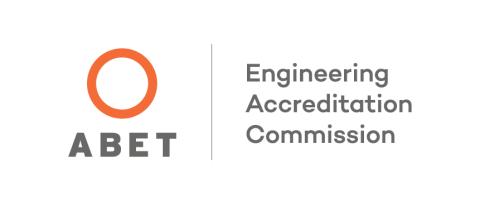The civil engineering major at UNH presents a dynamic with a flexible curriculum rooted principles of transportation, water resources, structural, environmental and geotechnical engineering. Here, you can tailor your studies to your interests, explore engaging electives and study abroad. You’ll engage with passionate faculty who are dedicated to your success, mentorship and building community through competition teams, like the Solar Decathlon, and professional organizations. The program’s hands-on experiences, innovative undergraduate research opportunities and valuable industrial internships that provide real-world insights that prepare you to make a tangible impact on society and sustainability of the world’s infrastructure. With a civil engineering degree from UNH your possibilities are endless.
What is a Bachelor of Science in civil engineering?
This program is tailored to students who are interested in the design, construction and maintenance of facilities that help humans lead better lives, while protecting the planet. Civil engineers create water and air treatment systems, highways, tunnels, foundations, buildings and bridges, while also restoring, protecting and improving the environment.
Why study civil engineering at UNH?
This program is rich with interesting students and engaged professors. You’ll begin taking civil engineering courses during your first year, and you’ll have the flexibility to tailor the curriculum to your interests. You’ll have the opportunity participate in a wide array of student organizations and activities. The civil engineering program allows for study abroad, complementary minors and dual majors, a track for graduating in fewer than four years, an accelerated master’s degree program and close ties to industry that result in internship and employment opportunities.
Potential careers
- Business executive
- Construction engineer
- Design engineer
- Engineer-of-record
- Field engineer
- Lawyer
- Project engineer
- Teacher
- Technical sales
Curriculum & Requirements
Matriculating students should have strong aptitudes in mathematics and science along with imagination, spatial and graphic abilities, communication skills, and creativity.
Students follow a four-year program of study. The first two years of the program provide the necessary technical knowledge in mathematics, chemistry, and physics, while introducing and developing problem-solving techniques in eight courses tailored to civil engineering students. The junior year provides courses in each of the civil engineering sub-disciplines, providing students with skills in each and allowing students to determine which they wish to pursue further. The senior year is flexible, allowing students to choose where to focus attention by selecting from more than forty elective courses in civil and environmental engineering.
Additional opportunities exist for study abroad, cognates, minors, and dual majors, a three-year accelerated track, and early admission into two masters of science degree programs.
The Civil Engineering program (B Sci in Civil Engineering) is accredited by the Engineering Accreditation Commission of ABET, https://www.abet.org, under the General Criteria and the Program Criteria for Civil and Similarly Named Engineering Programs.
Sample Degree Plan
This sample degree plan serves as a general guide; students collaborate with their academic advisor to develop a personalized degree plan to meet their academic goals and program requirements.
| First Year | ||
|---|---|---|
| Fall | Credits | |
| CEE 400 | Introduction to Civil Engineering | 4 |
| CEE 520 | Environmental Pollution and Protection: A Global Context | 4 |
| CEE 402 | 2D Computer Aided Design | 3 |
MATH 418 | Analysis and Applications of Functions (if necessary, 0-4 credits) | |
| Discovery Program requirement 1 | 4 | |
| Credits | 15 | |
| Spring | ||
| MATH 425 | Calculus I | 4 |
| PHYS 407 | General Physics I | 4 |
| Elective Spatial Metrics 3 | 4 | |
| ENGL 401 | First-Year Writing | 4 |
| Credits | 16 | |
| Second Year | ||
| Fall | ||
| CEE 500 | Statics for Civil Engineers | 3 |
| CEE 502 | Project Engineering | 3 |
| MATH 426 | Calculus II | 4 |
| PHYS 408 | General Physics II | 4 |
| Discovery Program requirement 1 | 4 | |
| Credits | 18 | |
| Spring | ||
| CEE 501 | Strength of Materials | 3 |
| CEE 505 | Introduction to Sustainable Engineering | 3 |
| CHEM 405 | Chemical Principles for Engineers | 4 |
| MATH 527 | Differential Equations with Linear Algebra | 4 |
| Discovery Program requirement 1 | 4 | |
| Credits | 18 | |
| Third Year | ||
| Fall | ||
| CEE 635 | Engineering Materials | 4 |
| CEE 650 | Fluid Mechanics | 4 |
| CEE 680 | Classical Structural Analysis | 3 |
| Discovery Program requirement 1 | 4 | |
| Credits | 15 | |
| Spring | ||
| CEE 620 | One Water Engineering | 4 |
| CEE 665 | Soil Mechanics | 4 |
| Elective Statistics 3 | 4 | |
| Discovery Program requirement 1 | 4 | |
| Credits | 16 | |
| Fourth Year | ||
| Fall | ||
| CEE 797 | Introduction to Project Planning and Design | 2 |
| Elective Project-Based Design Elective 3 | 4 | |
| Elective Area Elective 2 3 | 3 | |
| Elective Civil Engineering 3 | 3 | |
| Discovery Program requirement 1 | 4 | |
| Credits | 16 | |
| Spring | ||
| CEE 798 | Project Planning and Design | 2 |
| Elective Area Elective 3 3 | 3 | |
| Elective Area Elective 4 3 | 3 | |
| Elective Civil Engineering 3 | 3 | |
| Elective Senior Technical Elective 3 | 3 | |
| Credits | 14 | |
| Total Credits | 128 | |
- 1
A course satisfying one each of the Discovery Program categories of Biological Science, Humanities, Fine and Performing Arts, Historical Perspectives, Social Science and World Cultures, preferably taken in this order. The Discovery Social Science elective must be selected from CEP 415, ECON 401, ECON 402, NR 411, GEOG 582, or POLT 402.
- 2
Satisfies capstone requirement for Discovery.
- 3
Approved list available in the CEE office.
Degree Requirements
All Major, Option and Elective Requirements as indicated.
*Major GPA requirements as indicated.
Major Requirements
More than half of the major's total credits and nearly all of the senior-level courses are elected by the student. Of these, there are Discovery Program electives required by the University and other electives required by the department in order to satisfy departmental objectives and accreditation requirements.
The Discovery Program is described in University Academic Requirements. Courses required by the BSCIVE program fulfill Discovery requirements in Inquiry and Environment, Technology, and Society; Writing Skills; Quantitative Reasoning; Physical Sciences and Discovery Lab; and Capstone.
To graduate with a bachelor of science in civil engineering, a student must achieve the following: 128 or more credits, credit for the civil engineering program's major and elective courses, satisfaction of the University's Discovery Program requirements, satisfaction of the University's writing-intensive course requirements, a cumulative grade-point average of 2.0 or better for all courses, and a cumulative grade-point average of 2.0 or better in all CEE courses.
| Code | Title | Credits |
|---|---|---|
| Required Courses | ||
| CEE 400 | Introduction to Civil Engineering | 4 |
| CEE 402 | 2D Computer Aided Design | 3 |
| CEE 403 | GIS for Civil and Environmental Engineering | 3 |
| or CEE 404 | Surveying and Mapping | |
| or NR 658 | Introduction to Geographic Information Systems | |
| or ANTH 674 | Archaeological Survey and Mapping in Belize | |
| CEE 500 | Statics for Civil Engineers | 3 |
| CEE 501 | Strength of Materials | 3 |
| CEE 502 | Project Engineering | 3 |
| CEE 505 | Introduction to Sustainable Engineering | 3 |
| CEE 520 | Environmental Pollution and Protection: A Global Context | 4 |
| CEE 620 | One Water Engineering | 4 |
| CEE 635 | Engineering Materials | 4 |
| CEE 650 | Fluid Mechanics | 4 |
| CEE 665 | Soil Mechanics | 4 |
| CEE 680 | Classical Structural Analysis | 3 |
| CEE 797 | Introduction to Project Planning and Design | 2 |
| CEE 798 | Project Planning and Design | 2 |
| CHEM 405 | Chemical Principles for Engineers | 4 |
| or CHEM 403 & CHEM 404 | General Chemistry I and General Chemistry II | |
| MATH 425 | Calculus I | 4 |
| MATH 426 | Calculus II | 4 |
| MATH 527 | Differential Equations with Linear Algebra | 4 |
| MATH 539 | Introduction to Statistical Analysis | 4 |
| or MATH 644 | Statistics for Engineers and Scientists | |
| PHYS 407 | General Physics I | 4 |
| PHYS 408 | General Physics II | 4 |
| Electives | ||
| Choose seven courses from the '700-level CEE Electives Course List' below with the following restrictions: | ||
| 1. Courses must be taken in four of six different areas (sustainability, environmental, materials, water resources, geotechnical, structural). | ||
| 2. At least three design courses; including one Project-based Design Elective PDE course. | ||
| 3. One of the seven 700-level courses is a senior technical elective. | ||
| Design/Area Elective (Project-based Design Elective PDE) | 3-4 | |
| Design/Area Elective | 3-4 | |
| Design/Area Elective | 3-4 | |
| Area Elective | 3-4 | |
| CEE Elective | 3-4 | |
| CEE Elective | 3-4 | |
| Senior Technical Elective (choose a course from the '700-level CEE Electives Course List' below, CEPS 700-level course, GEOG 757, INCO 795, NR 757, TECH 750, or TECH 780). | 3-4 | |
| 700-Level CEE Electives | ||
| Select courses from the following lists: | ||
Project-based Design Elective (PDE) Courses | ||
CEE 749 | Pavement Design and Analysis | |
CEE 755 | Design of Pressurized Water Transmission Systems | |
CEE 758 | Stormwater Management Designs | |
CEE 759 | Stream Restoration | |
CEE 778 | Foundation Design I | |
CEE 791 | Reinforced Concrete Design | |
CEE 793 | Structural Design in Steel | |
Additional Design Courses | ||
CEE 719 | Green Building Design | |
CEE 730 | Public Health Engineering for Rural and Developing Communities | |
CEE 731 | Advanced Water Treatment Processes | |
CEE 732 | Solid Waste Facility and Remediation System Design | |
CEE 779 | Foundation Design II | |
CEE 789 | Timber Design | |
CEE 790 | Structural Design in Masonry | |
CEE 792 | Pre-stressed Concrete | |
CEE 794 | Bridge Design | |
Structural Engineering (STR) Area Courses | ||
CEE 780 | Matrix Structural Analysis and Modeling | |
CEE 781 | Dynamics of Structures | |
CEE 789 | Timber Design | |
CEE 790 | Structural Design in Masonry | |
CEE 791 | Reinforced Concrete Design | |
CEE 792 | Pre-stressed Concrete | |
CEE 793 | Structural Design in Steel | |
CEE 794 | Bridge Design | |
Geotechnical Engineering (GEO) Area Courses | ||
CEE 765 | Engineering Behavior of Soils | |
CEE 766 | Introduction to Geotechnical Earthquake Engineering | |
CEE 768 | Geo-Environmental Engineering | |
CEE 778 | Foundation Design I | |
CEE 779 | Foundation Design II | |
Material (MAT) Area Courses | ||
CEE 733 | Public Infrastructure Asset Management | |
CEE 735 | Properties and Production of Concrete | |
CEE 736 | Asphalt Mixtures and Construction | |
CEE 749 | Pavement Design and Analysis | |
Water Resources (WAT) Area Courses | ||
CEE 751 | Open Channel Flow | |
CEE 753 | Snow Hydrology | |
CEE 754 | Engineering Hydrology | |
CEE 755 | Design of Pressurized Water Transmission Systems | |
CEE 758 | Stormwater Management Designs | |
CEE 759 | Stream Restoration | |
Environmental Engineering (ENV) Area Courses | ||
CEE 720 | Waste Management and Site Remediation | |
CEE 721 | Environmental Sampling and Analysis | |
CEE 722 | Introduction to Marine Pollution and Control | |
CEE 723 | Environmental Engineering Chemistry | |
CEE 724 | Environmental Engineering Microbiology | |
CEE 730 | Public Health Engineering for Rural and Developing Communities | |
CEE 731 | Advanced Water Treatment Processes | |
CEE 732 | Solid Waste Facility and Remediation System Design | |
CEE 768 | Geo-Environmental Engineering | |
Sustainability (SUS) Area Courses | ||
CEE 706 | Environmental Life Cycle Assessment | |
CEE 719 | Green Building Design | |
CEE 733 | Public Infrastructure Asset Management | |
Additional CEE Elective Courses | ||
CEE 700 | Building Information Modeling | |
CEE 703 | Site Design and Project Development | |
CEE 704 | Transportation Engineering: Highway Geometric Design | |
To transfer into the BSCIVE major, a student must satisfy the following:
- Be a CEPS major or have at least 12 credits of graded work at UNH along with Calculus I, and either chemistry or calculus-based physics.
- Have an overall UNH grade-point average of 2.33 or greater.
- Have an overall grade-point average of 2.33 or greater in all CEE courses taken to date;
- Have a grade-point average of 2.33 or greater in courses taken to date at UNH of MATH 425, PHYS 407, CHEM 403 or CHEM 405, CEE 500 or ME 525 , and CEE 501 or ME 526 .
- Have a grade-point average of 2.33 or greater in courses taken to date of CEE 500, CEE 501, ME 525, ME 526
At the time of transferring into the BSCIVE program, only CEE 600-level and CEE 700-level classes with a grade of C- or better may be transferred in.
BSCIVE majors wishing to participate in domestic or international exchange programs must achieve a cumulative grade-point average of 2.75 or better in all CEE courses taken to date at the time of application to the exchange program.
To begin taking the required CEE 600-level courses in the junior year, students must meet the following requirements:
- MATH 425, PHYS 407, CHEM 403 or CHEM 405, CEE 500 or ME 525 , and CEE 501 or ME 526 must have been completed with passing grades.
- The student must have a grade-point average of 2.00 or greater in all CEE courses.
- The student must have a grade-point average of 2.00 or greater in MATH 425, PHYS 407, CHEM 403 or CHEM 405, CEE 500 or ME 525 , and CEE 501 or ME 526 .
- The student must have a grade-point average of 2.00 or greater in CEE 500 or ME 525 and CEE 501 or ME 526 .
Program Learning Outcomes
By the time of graduation students have attained:
- an ability to identify, formulate, and solve complex engineering problems by applying principles of engineering, science, and mathematics.
- an ability to apply engineering design to produce solutions that meet specified needs with consideration of public health, safety, and welfare, as well as global, cultural, social, environmental, and economic factors.
- an ability to communicate effectively with a range of audiences.
- an ability to recognize ethical and professional responsibilities in engineering situations and make informed judgments, which must consider the impact of engineering solutions in global, economic, environmental, and societal contexts.
- an ability to function effectively on a team whose members together provide leadership, create a collaborative and inclusive environment, establish goals, plan tasks, and meet objectives.
- an ability to develop and conduct appropriate experimentation, analyze and interpret data, and use engineering judgment to draw conclusions.
- an ability to acquire and apply new knowledge as needed, using appropriate learning strategies.
Explore Program Details
Our curricula exceed UNH’s writing requirements and UNH’s Discovery Program requirements.
The Civil Engineering program (B Sci in Civil Engineering) is accredited by the Engineering Accreditation Commission of ABET, www.abet.org,under the General Criteria and the Program Criteria for Civil and Similarly Named Engineering Programs.

- Pursue and disseminate knowledge through teaching, scholarship, outreach, and public service.
- Provide excellent undergraduate and graduate education.
- Advance the state-of-the-art in science and engineering by conducting research.
- Enhance the quality of life for people in New Hampshire and beyond.
In accordance with its mission, the Department of Civil and Environmental Engineering seeks to attain the specific Educational Objectives and Outcomes listed herein.
Those interested in the Civil Engineering major may also be interested in the following advanced degrees. Students in the program also have the opportunity to participate in the UNH accelerated master’s program.
Civil & Environmental Engineering M.Eng.






















